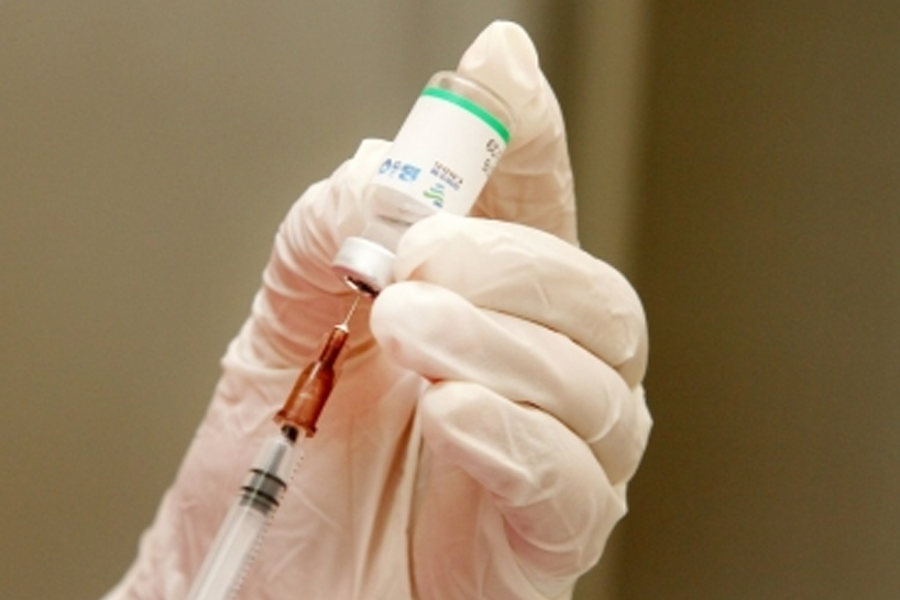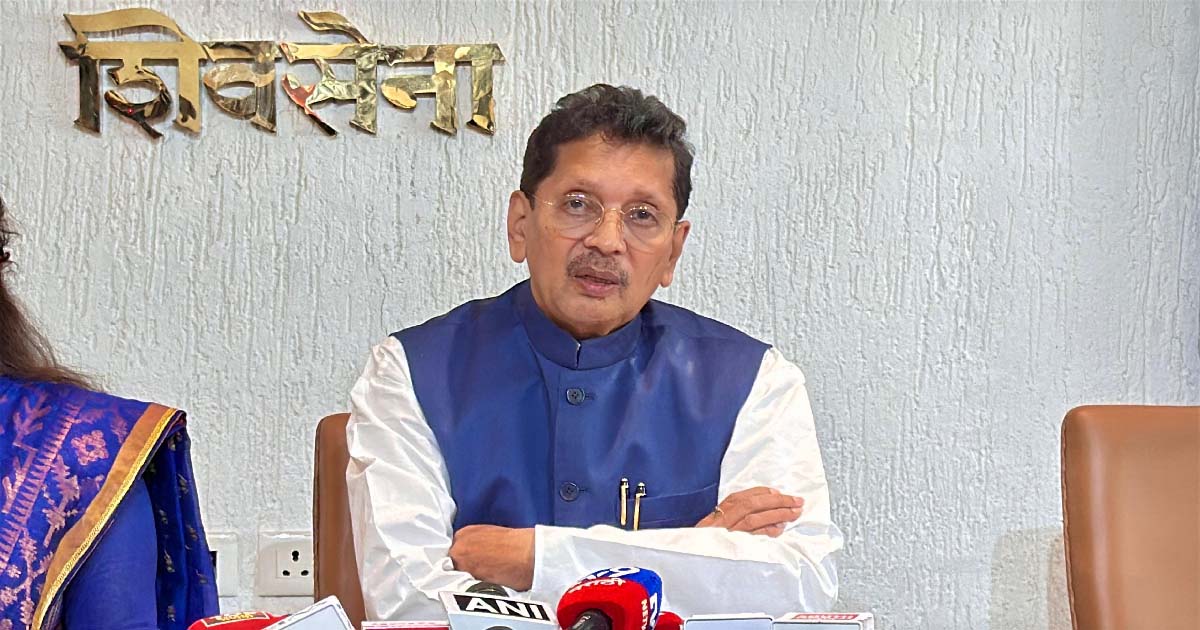General
WHO strongly advises against antibody treatments for Covid patients

The World Health Organisation (WHO) has strongly advised against antibody treatments for Covid-19 patients, saying antibody drugs sotrovimab and casirivimab-imdevimab are not working on new variants like Omicron.
These drugs work by binding to the SARS-CoV-2 spike protein, neutralising the virus’s ability to infect cells.
A WHO Guideline Development Group of international experts in the British Medical Journal (BMJ) BMJ said that almost all well-informed patients would not choose to receive sotrovimab or casirivimab-imdevimab.
The strong recommendation replaces previous conditional recommendations for their use and is based on emerging evidence from laboratory studies that these drugs are not likely to work against currently circulating variants, such as Omicron.
In the same update, the WHO made a conditional recommendation for the use of the antiviral drug remdesivir in patients with severe Covid-19, and a conditional recommendation against its use in patients with critical Covid-19.
These recommendations are based on results from five randomised trials involving 7,643 patients, showing 13 fewer deaths per 1,000 patients with severe Covid-19 taking remdesivir, but 34 more deaths per 1,000 patients with critical Covid-19 taking the drug.
“These new trial data provided sufficiently trustworthy evidence to demonstrate benefits in patients with severe Covid-19, but not critical Covid-19. The panel considered the benefits of remdesivir to be modest and of moderate certainty for key outcomes such as mortality and mechanical ventilation, resulting in a conditional recommendation,” said the update.
The WHO also advised that three drugs used to treat arthritis – the IL-6 receptor blockers tocilizumab or sarilumab and the JAK inhibitor baricitinib – may now be combined, in addition to corticosteroids, in patients with severe or critical Covid-19.
This advice is based on new high-certainty trial evidence confirming a survival benefit for baricitinib with little or no serious adverse events when given in combination with corticosteroids and IL-6 receptor blockers.
However, the panel acknowledged some cost and resource implications associated with these drugs, which, they say, could exacerbate health inequities.
Previously, the WHO has made a strong recommendation for use of nirmatrelvir and ritonavir, and a conditional recommendation for molnupiravir for high-risk patients with non-severe covid-19. WHO advises against the use of ivermectin and hydroxychloroquine in patients with covid-19 regardless of disease severity.
Maharashtra
Mumbai Municipal Corporation Elections 2025-26: Final voter lists with voter photographs available for sale at the Central Election Office

Mumbai: State Election Commission, Maharashtra has announced a revised schedule for publication of polling station wise voter lists in connection with the Municipal Corporation General Elections 2025-26. The order states that the complete municipality wise voter list shall be published as soon as it is completed. Accordingly, Mumbai Municipal Corporation has received polling station wise voter lists of 226 out of 227 wards from the State Election Commission today, January 6, 2026. The said lists along with polling station wise voter photographs are available for sale at the concerned Central Election Offices from Wednesday, January 7, 2026. The Municipal Administration appeals to the citizens/political parties to purchase these voter lists from the concerned Central Election Offices.
Mumbai Press Exclusive News
If Uddhav Thackeray is elected unopposed then everything is fine, if someone else is elected then it is wrong: Deepak Kesarkar

Mumbai: During the municipal elections, the leaders of the Uddhav Thackeray group are constantly trying to spread chaos. Sometimes they are spreading wrong information and sometimes they are doing politics in the name of Chhatrapati Shivaji Maharaj. Former Shiv Sena minister and MLA Deepak Kesarkar expressed his strong displeasure and reacted strongly to this irresponsible statement of the UBT. In a press conference held in Mumbai, Deepak Kesarkar said that the UBT leaders are busy defaming Maharashtra. They do not have any development plan, hence they are constantly making misleading and unnecessary statements. Shiv Sena national spokesperson Shaina NC was also present at the press conference.
Deepak Kesarkar questioned the UBT leaders and said that if Uddhav Thackeray can be elected unopposed, why not other candidates? It is wrong to repeatedly question the election process. The Election Commission works with complete transparency and under this transparency, all the candidates were elected unopposed. UBT has no development agenda, while Mahayoti is moving forward with development issues, which is why people have faith in Mahayoti.
Reacting strongly to Sanjay Raut’s statements, Deepak Kesarkar said that Chhatrapati Shivaji Maharaj belongs not only to Maharashtra but to the entire country. The kind of politics Sanjay Raut is playing in the name of a great personality shows that his health is still not good. He should re-evaluate himself so that he can stop making such absurd statements.
He added that Chhatrapati Shivaji Maharaj was given the highest honour during the tenure of Prime Minister Narendra Modi. Shivaji Maharaj’s emblem was included in the Indian Navy’s emblem, a move that no government had done before.
Shiv Sena national spokesperson Shaina NC targeted UBT and said that in the last 25 years, Mumbai has been full of potholes. However, now Shiv Sena central leader and Deputy Chief Minister Eknath Shinde has pledged to make Mumbai pothole-free. The work has started, and by 2027, all the roads of Mumbai will be pothole-free.
He added that a detailed blueprint for Mumbai was prepared in an important meeting between Deputy Chief Minister Eknath Shinde and Transport Minister Pratap Sarnaik. Under this blueprint, several important decisions related to roads and transportation have been taken, which will provide significant relief to the people of Mumbai.
Maharashtra
Mumbai municipal elections: A series of rebellions among political parties

Mumbai: Ahead of the Mumbai municipal elections, the migration of disgruntled party leaders to other parties has begun. Maharashtra Navnirman Sena has suffered a major setback before the municipal elections. Several MNS leaders have joined Shiv Sena Shinde Sena. Along with this, Santosh Dhuri, a close associate of Raj Thackeray, joined the BJP. Even after this, the party change is not stopping and many senior MNS leaders have joined Shiv Sena Eknath Shinde and raised the flag of rebellion against the party. Before the BMC elections in Mumbai, Raj and Uddhav Thackeray had formed an electoral alliance, but the rebel leaders of these parties are still separating from the party, due to which there is a long series of rebellions in both the parties. Many leaders, unhappy with not getting tickets, are leaving their party and joining other parties. Maharashtra Navnirman Sena General Secretary Raja Bhau Chogle, MNS spokesperson Hemant Kamble, MNS Chhatrapati Sena General Secretary Rahul Topalonde, Maharashtra Navnirman Vidyarthi Sena Sandesh Shetty, Munawar Sheikh, Ashish Mark, Prathamesh Banerjee, Santosh Yadav joined Shiv Sena in the presence of Deputy Chief Minister Eknath Shinde. On this occasion, Shinde welcomed all of them into the party and wished them well for their future. On this occasion, Shiv Sena General Secretary Rahul Shivale, Shiv Sena Secretary Sushant Shelar, Shiv Sena spokesperson Sheetal Mahatre and all local office bearers and workers of Shiv Sena were present.
-

 Crime3 years ago
Crime3 years agoClass 10 student jumps to death in Jaipur
-

 Maharashtra1 year ago
Maharashtra1 year agoMumbai Local Train Update: Central Railway’s New Timetable Comes Into Effect; Check Full List Of Revised Timings & Stations
-

 Maharashtra1 year ago
Maharashtra1 year agoMumbai To Go Toll-Free Tonight! Maharashtra Govt Announces Complete Toll Waiver For Light Motor Vehicles At All 5 Entry Points Of City
-

 Maharashtra1 year ago
Maharashtra1 year agoFalse photo of Imtiaz Jaleel’s rally, exposing the fooling conspiracy
-

 National News1 year ago
National News1 year agoMinistry of Railways rolls out Special Drive 4.0 with focus on digitisation, cleanliness, inclusiveness and grievance redressal
-

 Maharashtra1 year ago
Maharashtra1 year agoMaharashtra Elections 2024: Mumbai Metro & BEST Services Extended Till Midnight On Voting Day
-

 National News1 year ago
National News1 year agoJ&K: 4 Jawans Killed, 28 Injured After Bus Carrying BSF Personnel For Poll Duty Falls Into Gorge In Budgam; Terrifying Visuals Surface
-

 Crime1 year ago
Crime1 year agoBaba Siddique Murder: Mumbai Police Unable To Get Lawrence Bishnoi Custody Due To Home Ministry Order, Says Report














